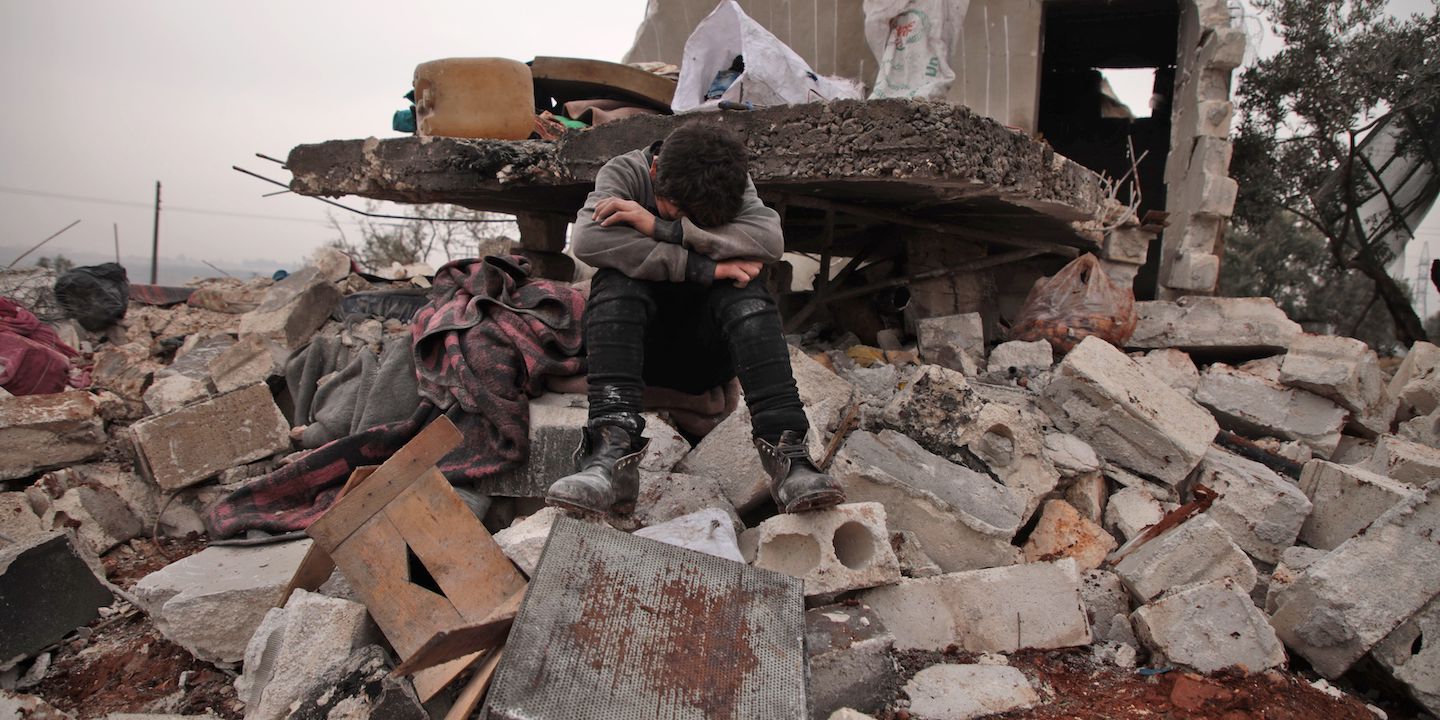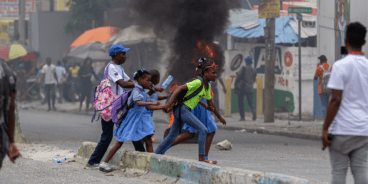

How a UN Board of Inquiry Failed to Address the Real Problem in Syria
Since April 2019 Syrian government and Russian forces have carried out a brutal offensive in northwest Syria, resulting in the deaths of over 1,500 civilians. As the bombings intensified in mid 2019, international outrage grew as airstrikes regularly hit health facilities, schools, displacement centers and other civilian objects, including those on a “deconfliction” list established by the UN to help facilitate their protection. Any joint action by the UN Security Council (UNSC) in response to these attacks was actively blocked by China and Russia, the latter of which was directly involved in the military offensive. Amidst frustration that perpetrators were being systematically shielded from accountability, and faced with few other diplomatic options, ten members of the UNSC issued a démarche to the UN Secretary-General requesting an investigation into attacks on civilian objects.
When UN Secretary-General António Guterres responded by creating a Board of Inquiry on 13 September 2019, there was hope that the Board could provide sufficient evidence to force the UNSC to finally confront ongoing atrocities in Syria. Many believed the Board’s findings would create an opportunity to defend international law and produce long overdue steps towards accountability for systematic violations committed in northwest Syria.
Unfortunately, the summary of the Board’s findings released by the Secretary-General on 6 April fell far short of these hopes and expectations. In establishing the Board, the Secretary-General’s stated objective was to develop a “clear record” of the facts and causes of these incidents, and to take steps to prevent their recurrence. However, several fundamental flaws with both the findings and the overall structure of the investigation prevented the Board from fulfilling this objective with far-reaching ramifications.
No Crimes, Limited Perpetrators
The Board was mandated to review and investigate specific incidents in which there was destruction of, or damage to, facilities on the deconfliction list and UN-supported facilities in northwest Syria since September 2018. After investigating attacks against seven protected sites – including one school, four health facilities, one refugee camp, and one protection center – that took place between 28 April and 28 July 2019, the Board found it was “highly probable” that five attacks are “attributable to the Government of Syria and/or its allies.”
Under the Geneva Conventions, civilian objects such as health facilities and schools are considered protected sites during times of armed conflict. An attack against them may amount to a war crime under International Humanitarian Law (IHL). However, in selecting a Board of Inquiry as a response to the démarche, the Secretary-General opted for a mechanism explicitly mandated “not to include in its report any findings of law.” Stripping the investigation of this framework undermines IHL and the rule of law, because the Board could not correctly classify these incidents for what they were: violations of international law amounting to possible war crimes.
Despite dropping thousands of bombs across northwest Syria in support of the government’s offensive, Russia, a permanent member of the UNSC, was never specifically mentioned as a responsible party. This happened despite the Board acknowledging coordinated military action between Russia and the Syrian government. Interestingly, one of the sites under investigation, Kafr Nobol hospital, was targeted twice by Russian aircraft during May and November 2019. Perhaps conveniently, the Board did not investigate these specific incidents, focusing instead on a 4 July attack perpetrated by the Syrian government alone. Such omissions paint an inaccurate picture of Russia’s role in the conflict and its influence on the government of Syria.
These flawed findings are partially a product of the fact that neither the Board’s mandate nor the investigative process were situated within the broader circumstances of the Syrian conflict. The seven incidents did not occur in a vacuum – they occurred after eight years of widespread atrocity crimes and a systematic strategy of targeting civilians. To extract the Board’s investigation from this context whitewashes the circumstances under investigation. In a separate investigation of incidents in northwest Syria, the UN Commission of Inquiry found that Syrian government and Russian forces have intentionally terrorized civilian populations while systematically perpetrating potential war crimes. The Board could have easily referenced these and other credible UN findings. It failed the thousands of victims of these atrocities by neglecting to do so.
Misplaced Blame
While these omissions were detrimental to the Board’s conclusions, the emphasis of the report’s summary on issues with the “deconfliction mechanism” itself deflects responsibility for the attacks away from the perpetrators and on to the UN Office for the Coordination of Humanitarian Affairs (OCHA).
The Board rightfully assessed numerous logistical weaknesses of the deconfliction mechanism. However, it problematically concluded that the mechanism was not “explicitly situated” within the context of IHL, causing parties to misinterpret it as “a replacement for or alternative to the standards established by that law.” Powerful states are well aware of their obligations under IHL, and the onus falls on parties to the conflict to protect civilians and uphold their legal obligations during armed conflicts. The Board, however, gave no attention to the existing responsibilities of the warring parties.
The central problem with deconfliction in Syria is that it only works if the warring parties themselves are willing to use the information to uphold their legal obligation to protect civilian objects. Deflecting the blame for violations of IHL on to OCHA’s alleged lack of specificity undermines the purposes and principles of international law. It also removes primary responsibility for the protection of vulnerable populations away from those conducting the bombing, namely Russia and Syria.
Highlighting the very serious complications in the deconfliction mechanism should not have overshadowed a discussion of how to address the actions of perpetrators. The Board made more than a dozen recommendations to OCHA on how to improve their working methods, but failed to make a single recommendation on how to hold the perpetrators of the seven incidents accountable. The Board had an explicit mandate to recommend steps to minimize the recurrence of these incidents, but it failed to acknowledge that accountability measures are a way to deter future violations and atrocities.
Addressing the actual problem in Syria
A pervasive and blatant lack of respect for IHL and other legal obligations is the primary reason why violations against protected sites continues in Syria. Civilians will only be protected when states and other parties to the conflict uphold international law. The Board’s focus otherwise ignores this fundamental problem and inadvertently compounds it: impunity begets impunity, and parties to the conflict in Syria have demonstrated time and again that without tangible consequences for failing to abide by their obligations, they will continue to ruthlessly target civilians and civilian objects.
Halting war crimes in Syria will only be possible if the international community consistently prioritizes IHL as the standard of conduct in armed conflicts and holds all parties criminally accountable for violating those standards. The fact that IHL obligations did not inform the Board’s mandate nor feature prominently in its findings speaks volumes. This was a missed opportunity to compel perpetrators in Syria to uphold both their legal obligations and their responsibility to protect the civilian population. This chance to resolutely defend the rule of law was not effectively seized – and it is now up to the highest levels of the UN and the Security Council to act on their responsibilities and make up the difference. Ultimately, it is the thousands of victims of atrocity crimes perpetrated in northwest Syria that demand and deserve more.
Related Content


11th Meeting of the Global Network of R2P Focal Points Outcome Document
